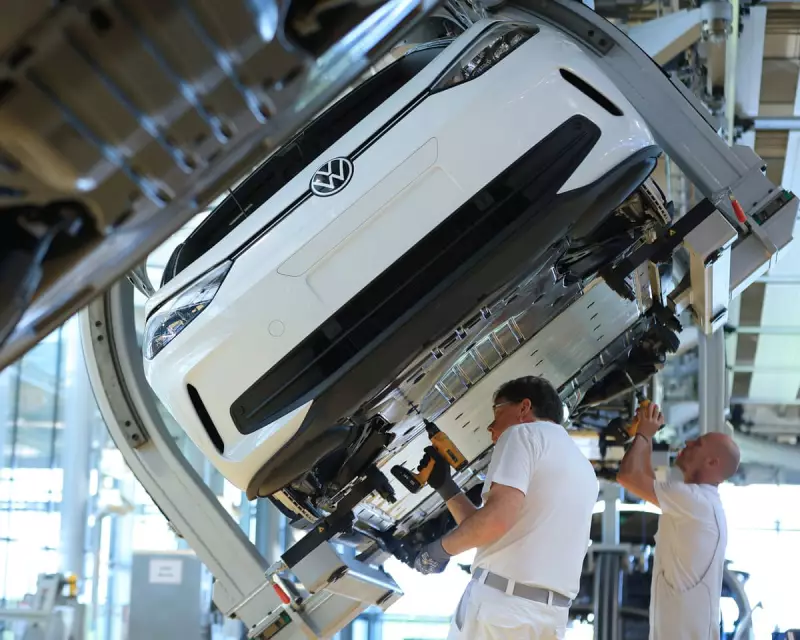
Europe's automotive powerhouse Volkswagen has been dealt a crushing blow, plunging to a staggering €2.5bn (£2.1bn) loss in the third quarter as the relentless global chip shortage continues to paralyse production lines.
The German manufacturer's dramatic downturn comes despite posting a respectable 4% revenue increase to €78.5bn, revealing the devastating impact of supply chain disruptions on even the industry's strongest players.
Production Paralysis Across European Factories
Factory floors across Volkswagen's European operations have faced repeated shutdowns, with the company confirming production of approximately 150,000 fewer vehicles than planned during the quarter. The semiconductor drought has forced temporary closures at multiple plants, leaving completed vehicles waiting for essential computer chips before they can reach customers.
"We're essentially building cars that can't be driven off the lot," one industry insider revealed. "The factories can assemble the bodies, but without those crucial semiconductors, they're just expensive metal sculptures."
Chinese Rivals Accelerate Ahead
While European manufacturers struggle, Chinese electric vehicle makers are surging ahead, leveraging their domestic semiconductor supply chains and government support to increase market share dramatically. Companies like BYD and Nio have reported record deliveries, capitalising on Western competitors' production constraints.
The contrasting fortunes highlight a worrying trend for European carmakers, who risk being left behind in the critical transition to electric mobility despite massive investment programmes.
Industry-Wide Crisis Deepens
Volkswagen isn't suffering alone. The entire European automotive sector is feeling the pinch:
- Production delays stretching to 12 months for some popular models
- Showroom inventories at historic lows
- Second-hand car prices soaring as buyers seek alternatives
- Component suppliers facing uncertain order patterns
Industry analysts warn the chip crisis could persist well into 2026, with some semiconductor manufacturers indicating supply may not normalise until the latter half of next year.
Strategic Shifts and Future Outlook
In response to the ongoing challenges, Volkswagen has announced plans to deepen relationships with chip suppliers and explore direct purchasing agreements, bypassing traditional automotive parts suppliers. The company is also accelerating its software development for next-generation vehicles.
"The automotive industry is learning a painful lesson about supply chain resilience," commented automotive analyst Sarah Chen. "Companies that adapt fastest to the new reality of strategic component management will emerge strongest when the crisis eventually eases."
With electric vehicle demand continuing to grow globally, the race is on for European carmakers to secure their semiconductor supply chains before Chinese competitors establish an unassailable lead in the market.





